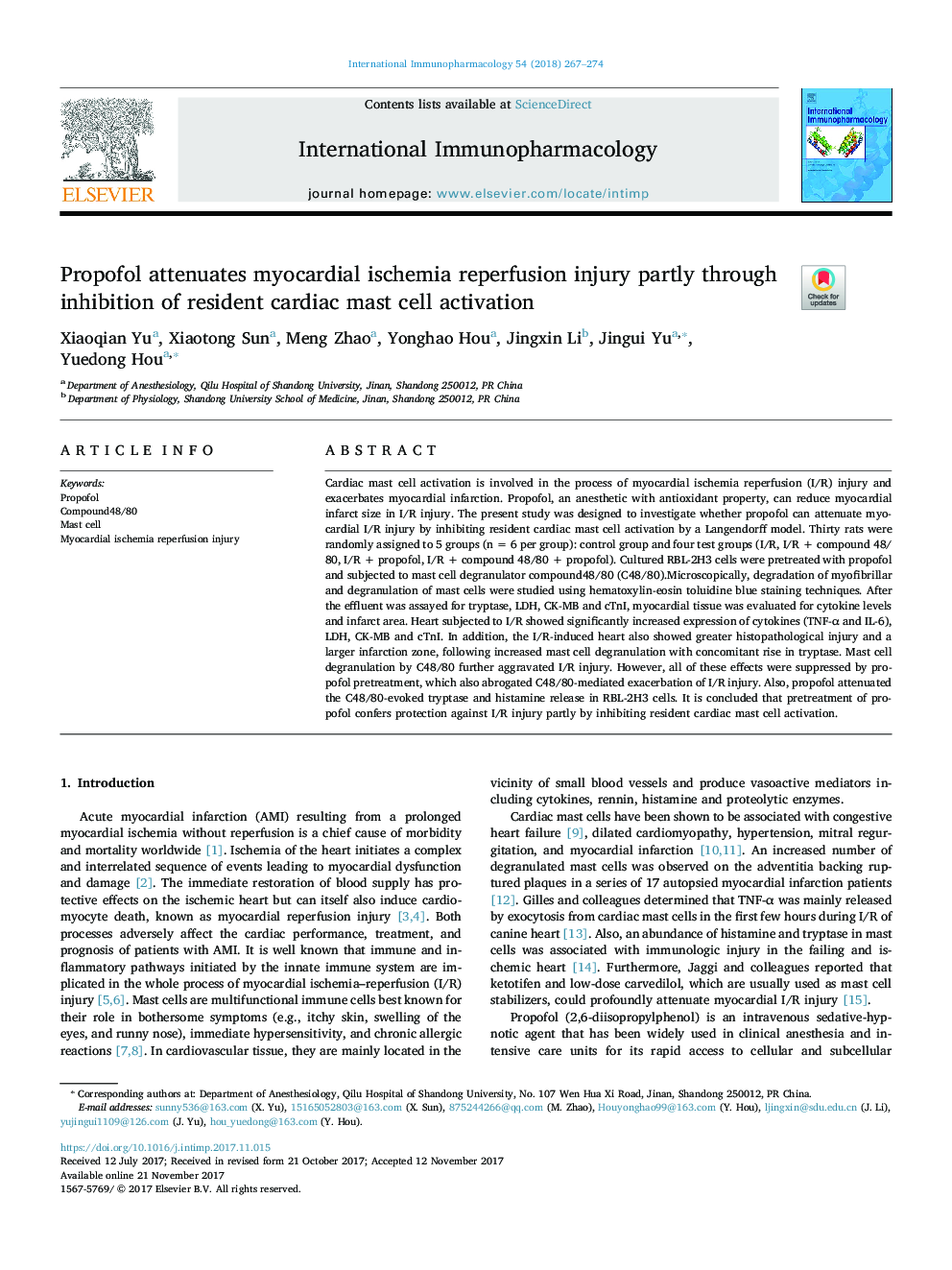| Article ID | Journal | Published Year | Pages | File Type |
|---|---|---|---|---|
| 8531571 | International Immunopharmacology | 2018 | 8 Pages |
Abstract
Cardiac mast cell activation is involved in the process of myocardial ischemia reperfusion (I/R) injury and exacerbates myocardial infarction. Propofol, an anesthetic with antioxidant property, can reduce myocardial infarct size in I/R injury. The present study was designed to investigate whether propofol can attenuate myocardial I/R injury by inhibiting resident cardiac mast cell activation by a Langendorff model. Thirty rats were randomly assigned to 5 groups (n = 6 per group): control group and four test groups (I/R, I/R + compound 48/80, I/R + propofol, I/R + compound 48/80 + propofol). Cultured RBL-2H3 cells were pretreated with propofol and subjected to mast cell degranulator compound48/80 (C48/80).Microscopically, degradation of myofibrillar and degranulation of mast cells were studied using hematoxylin-eosin toluidine blue staining techniques. After the effluent was assayed for tryptase, LDH, CK-MB and cTnI, myocardial tissue was evaluated for cytokine levels and infarct area. Heart subjected to I/R showed significantly increased expression of cytokines (TNF-α and IL-6), LDH, CK-MB and cTnI. In addition, the I/R-induced heart also showed greater histopathological injury and a larger infarction zone, following increased mast cell degranulation with concomitant rise in tryptase. Mast cell degranulation by C48/80 further aggravated I/R injury. However, all of these effects were suppressed by propofol pretreatment, which also abrogated C48/80-mediated exacerbation of I/R injury. Also, propofol attenuated the C48/80-evoked tryptase and histamine release in RBL-2H3 cells. It is concluded that pretreatment of propofol confers protection against I/R injury partly by inhibiting resident cardiac mast cell activation.
Related Topics
Life Sciences
Immunology and Microbiology
Immunology
Authors
Xiaoqian Yu, Xiaotong Sun, Meng Zhao, Yonghao Hou, Jingxin Li, Jingui Yu, Yuedong Hou,
